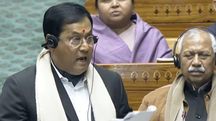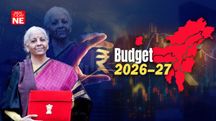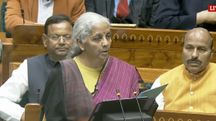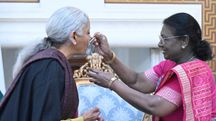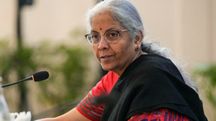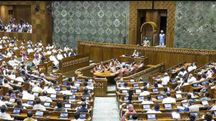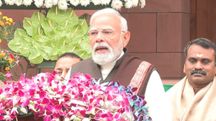Parliament expands translation services; Bodo, Manipuri among 6 new languages added
In a significant move to enhance linguistic inclusivity in the Indian Parliament, Lok Sabha Speaker Om Birla announced on Tuesday the expansion of translation services to six additional languages—Bodo, Dogri, Maithili, Manipuri, Urdu, and Sanskrit. This initiative aims to foster greater accessibility for Members of Parliament (MPs) and the public while reinforcing India's commitment to its diverse linguistic heritage.

In a significant move to enhance linguistic inclusivity in the Indian Parliament, Lok Sabha Speaker Om Birla announced on Tuesday the expansion of translation services to six additional languages—Bodo, Dogri, Maithili, Manipuri, Urdu, and Sanskrit. This initiative aims to foster greater accessibility for Members of Parliament (MPs) and the public while reinforcing India's commitment to its diverse linguistic heritage.
Previously, parliamentary translation services were available in 10 regional languages—Assamese, Bengali, Gujarati, Kannada, Malayalam, Marathi, Odia, Punjabi, Tamil, and Telugu—alongside Hindi and English. With the latest additions, the total number of languages now stands at 16. Speaker Birla also revealed that efforts are underway to introduce simultaneous translations in 16 more languages, subject to the availability of human resources.
Addressing the House, Om Birla highlighted the global recognition of India's multilingual parliamentary system, stating, “India’s parliamentary democracy is strengthened by its linguistic diversity. When I shared our efforts to provide translation services in 22 languages at international forums, it was highly appreciated.” He reiterated the long-term vision of incorporating all 22 officially recognized languages into parliamentary proceedings.
However, the announcement was met with resistance from DMK MP Dayanidhi Maran, who questioned the inclusion of Sanskrit. Citing census data indicating that Sanskrit is spoken by only around 70,000 people, Maran challenged the allocation of public funds for a language that lacks a widespread speaker base. He argued that Sanskrit is not the primary language of any Indian state and suggested that its inclusion was ideologically motivated.
Responding firmly, Speaker Birla dismissed the objections, affirming Sanskrit as India’s "Mool Bhasha" (root language) and emphasizing that the initiative is about promoting linguistic inclusivity rather than favoring any particular language. He reiterated that the broader objective is to ensure representation for all 22 officially recognized languages, strengthening India's cultural and linguistic pluralism in parliamentary discourse.
Copyright©2026 Living Media India Limited. For reprint rights: Syndications Today
